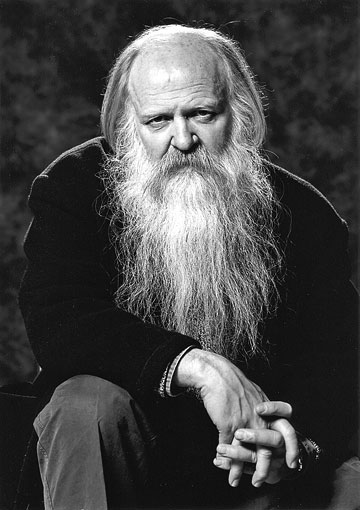David Goa on religion, free speech and the common good
COFFEE WITH WARREN, with Warren Harbeck
Cochrane Eagle, November 3, 2010

David Goa, Director, The Chester Ronning Centre, pleads for wisdom in applying freedom of the press to religious issues. Photo courtesy The Ronning Centre
Last week I brought up the topic of free speech and the importance of civility in dealing with sensitive sacred subjects.
But what are we to do when civility itself is strained by free speech?
I phoned my longtime coffee companion and mentor in such matters to get his opinion.
David Goa is the director of The Chester Ronning Centre for the Study of Religion and Public Life, University of Alberta. We first became friends back in the 1980s, when he was curator of folklife at the Provincial Museum of Alberta (now the Royal Alberta Museum).
In our phone conversation, David referred to a newspaper column he published on Feb. 22, 2006, in the Camrose Booster, Camrose, Alberta. Entitled “Free Speech and the Common Good,” it was his response to the violent controversy developing around a Danish cartoonist’s portrayal of the Prophet Mohammed the previous year.
In the column, David considered the values and history pertaining to our Western understanding of free speech, especially as it relates to stereotypical thinking about others different from ourselves, and in particular, Muslim extremists.
“The doctrine of free speech is a hard-won treasure of liberal democratic society,” David said. Its most recent expression goes back a couple of hundred years to the victorious struggle by the British press to report on parliamentary debates.
“The exercise of freedom of the press and freedom of speech is intended to help us understand what affects the life of our society. These doctrines were never intended for mischief or blasphemy,” he said. “We diminish these doctrines when we use them to justify the publication of materials that are mean spirited and deliberately harmful,” such as the Danish cartoons.
As in 17th century Christian Europe, so in the present-day Muslim world, “there is a profound struggle . . . to define the faith in the face of modernization,” he said. Secularist journalists enter into the fray by “publicizing cartoons that offered no more than mischief in the first place,” because of their “appetite for the journalist’s equivalent of the schoolyard brawl . . . .
“It’s a dangerous game played with a precious civil value that was bought and paid for with the blood of many a faithful journalist and public intellectual working in the public square for the common good.”
One month after David published that column, The Chester Ronning Centre was officially launched. Its purpose, according to its website, is “to cultivate a deep understanding of issues and themes at the intersection of religion, faith and public life, and to do so in the public sphere and in religious spheres.”
This winter The Ronning Centre is offering the course “The Presence of the Word: Media and Truth-Telling,” to be taught at its Augustana Campus, Camrose, by David and his colleague, Dittmar Mündel. The course is “an exploration of what is life-giving and what is death-dealing in news stories and how religious tradition and propaganda is at play in the reshaping of the modern mind.”
I’m hoping to tempt David into coming to Cochrane in the near future to provide the same course here (eight two-hour sessions). Readers, let me know if you’re interested.
© 2010 Warren Harbeck
JoinMe@coffeewithwarren.com